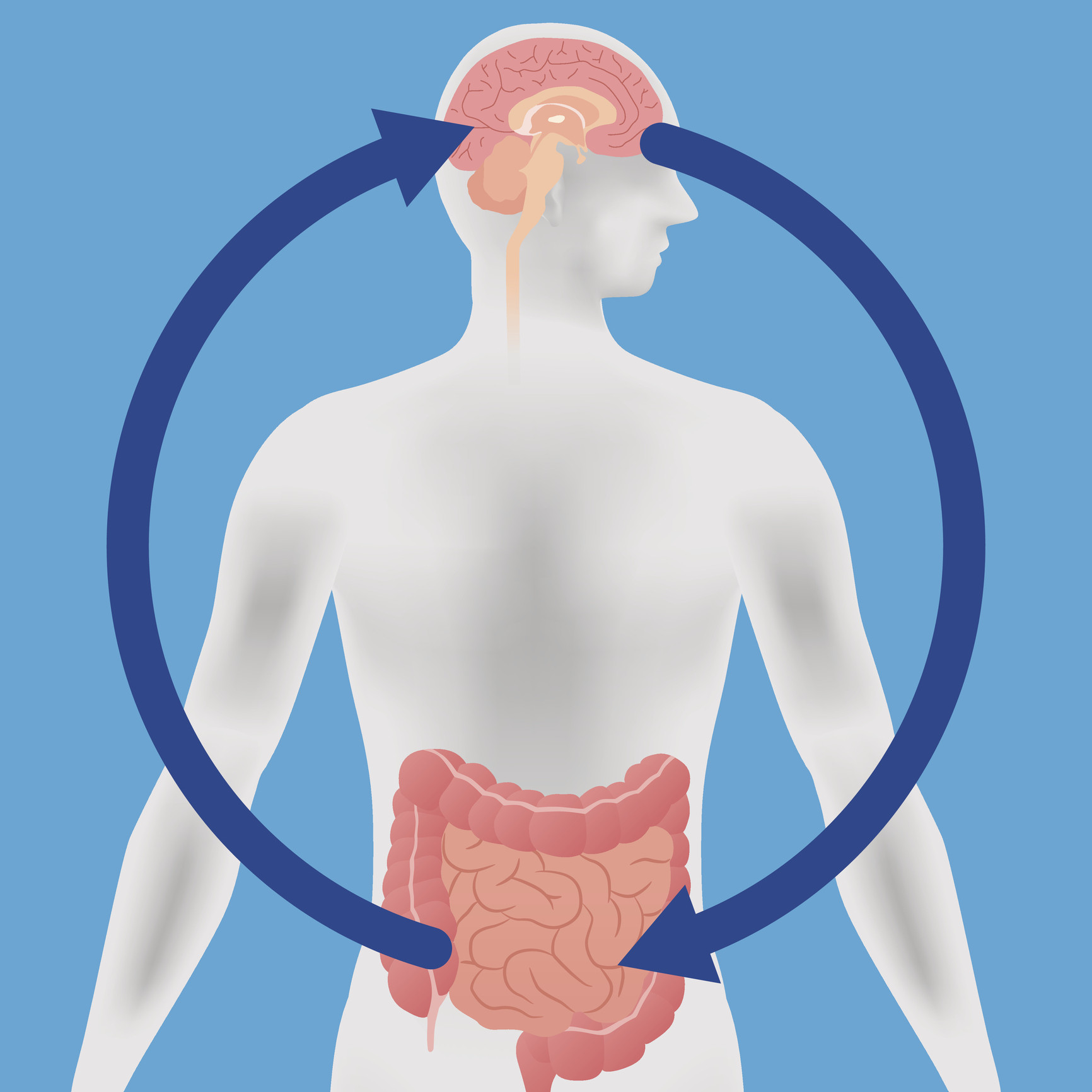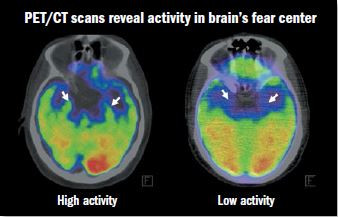
Driving with arthritis pain: Stay comfortable — and safe — behind the wheel

Daily cup of coffee may prevent afib recurrence

Gene-editing therapy lowers harmful blood fats in early study

What is EMDR therapy, and who can it help?

GLP-1 drugs versus bariatric surgery for treating obesity

Two dumbbells, three exercises, and 10 minutes

Easing the emotional burden of IBS

Modify your push-ups to meet your fitness level

What is long QT syndrome?

Stroke survivors may benefit from very low LDL levels
Anxiety Archive
Articles
Uncovering the link between emotional stress and heart disease
The brain's fear center may trigger inflammation and lead to a heart attack. But stress reduction techniques can break the chain.
Image: © Cardiology Division, Massachusetts General Hospital
A small, almond-shaped area deep inside the brain called the amygdala is involved in processing intense emotions, such as anxiety, fear, and stress. Now, a new brain-imaging study reveals how heightened activity in the amygdala may trigger a series of events throughout the body that raises heart attack risk.
"This study identifies a mechanism that links stress, artery inflammation, and subsequent risk of a heart attack," says study leader Dr. Ahmed Tawakol, an associate professor of medicine at Harvard Medical School. Earlier animal studies have shown that stress activates bone marrow to make white blood cells. These infection-fighting cells trigger inflammation, a process that encourages the buildup of fatty plaque inside artery walls. "But what we didn't know was, does this happen in humans? And what is the role of the brain?" he says.
Take steps to prevent or reverse stress-related health problems
The relaxation response appears to manage stress and some chronic conditions at the deepest levels.
Image: © XiXinXing/Thinkstock
Chronic stress takes a toll on the body: it contributes to everything from high blood pressure and heart disease to anxiety, digestive disorders, and slow wound healing. On the flip side, managing stress helps control many chronic conditions or reduce your risk for developing them. Strategies include regular exercise, a healthy diet, and better sleep. And one strategy in particular—eliciting the relaxation response—may enable you to manage stress right down to your genes.
The anti-stressor
Relaxation response and genes
In the past decade, several studies from the Benson-Henry Institute have suggested that the relaxation response is associated with changes in genes that influence health. Among the findings are effects on the following:
Blood pressure. The relaxation response may activate genes associated with dilating the blood vessels and reduce activity of genes associated with blood vessel narrowing and inflammation. "It increases nitric oxide production, which in-creases the elasticity of the blood vessels and relaxes them," says Dr. Mehta. That can help lower blood pressure.
Blood sugar. The relaxation response may improve insulin activity by activating genes that help to control blood sugar.
Digestion. The relaxation response may reduce the activity of genes directly linked to the processes of inflammatory bowel disease (including Crohn's disease and ulcerative colitis). "Stress stimulates the digestive tract, which may cause diarrhea or nausea. The relaxation response returns gastrointestinal movement to a balanced state," explains Dr. Mehta.
Inflammation. "The relaxation response appears to turn off genes implicated in inflammation, and the stress response itself," says Dr. Mehta. While we need inflammation to fight infection and heal the body, chronic stress puts the body in a constant state of inflammation. That can increase plaque buildup inside coronary arteries, which may raise the risk for heart attack, stroke, and chest pain, and can also trigger unregulated cell growth, contributing to cancer risk. Does this mean the relaxation response can prevent health problems, or even reverse health problems that have already appeared? "It's encouraging, and we are studying that question right now," says Dr. Mehta.
Trigger the response
More ways to get there
Other techniques that evoke the relaxation response include mindfulness meditation, tai chi, yoga, and the following methods.
Focused breathing. Focusing on slow, deep breaths can be calming. Make sure your belly moves in and out as you breathe.
A body scan. Concentrate on one part of the body. Imagine it is open, warm, and relaxed, and that you are releasing tension from that area. Move on to another body part and repeat the process.
Guided imagery. Create a soothing scene in your mind that makes you feel relaxed. It may be a place or an experience. Allow your senses to be involved, imagining the smells you are encountering, the sounds you are hearing, and the ways things feel in your hands.
Repetitive prayer. Repeat a favorite prayer from your faith either silently or out loud. You can use a guide (such as your breathing or a rosary) to help with the repetition.
For more information, contact the Benson-Henry Institute for Mind Body Medicine at 617-643-6090 or www.bensonhenryinstitute.org.
Is health anxiety linked to heart disease?
It appears that health anxiety may be associated with a greater risk for developing heart disease.
Meditation may ease anxiety from active surveillance
A mindfulness-based stress reduction program (MBSR) can help control anxiety among men who follow active surveillance for prostate cancer. The wait-and-see approach can make men feel so uneasy about their condition that they opt for treatment with radiation therapy or surgery when it is unnecessary. MBSR not only eases anxiety levels, but also inspires men to be more proactive about their health and adopt lifestyle changes like a proper diet and exercise.

Driving with arthritis pain: Stay comfortable — and safe — behind the wheel

Daily cup of coffee may prevent afib recurrence

Gene-editing therapy lowers harmful blood fats in early study

What is EMDR therapy, and who can it help?

GLP-1 drugs versus bariatric surgery for treating obesity

Two dumbbells, three exercises, and 10 minutes

Easing the emotional burden of IBS

Modify your push-ups to meet your fitness level

What is long QT syndrome?

Stroke survivors may benefit from very low LDL levels
Free Healthbeat Signup
Get the latest in health news delivered to your inbox!
Sign Up










